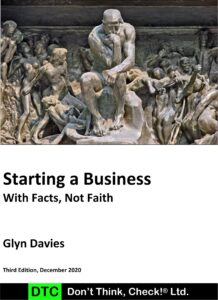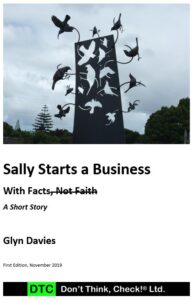
The report COVID-19 Roadmap to Recovery is a refreshing and valuable alternative to the seemingly endless advice proffered during the Covid-19 pandemic, with much of that advice having narrow focus and much of it providing little to no evidence in support of any recommendations.
Thank you Kailash Awati (K) from Eight to Late (https://eight2late.wordpress.com/) for your latest post: Collaborative reasoning in the age of Covid.
The reasons I think K’s post is of interest are:
- K seems like a top bloke who, based on my experience, is worth listening to (or reading).
- K introduces a collaboration tool called SWARM, billed as Cultivating Evidence-based Reasoning (evidence-based? – the heresy!)
- K presents and discusses the report from the Group of Eight (GoE – top Australian Universities) titled COVID-19: Roadmap to Recovery, A Report for the Nation, produced in 3-weeks by a collaboration of over 100 subject-matter experts using SWARM.
The GoE assembled a task force of over 100 academics from diverse disciplines and with the SWARM application, created the 192-page report in three weeks. Not only is it a remarkable feat to produce such a collaborative report in three weeks, but the report is also articulate, balanced, and modest in its evidence-based recommendations. For example, “it is the job of our research community to illuminate the possibilities, rather than offer simple solutions.” And, “[r]ather than recommend a single dominant option for pandemic response in Australia, we present and explain two options for the nation’s consideration – Elimination or Controlled Adaptation. We offer two choices for several reasons: First, there are considerable uncertainties around what we know about Covid-19. Estimates of critical determinants, such as the number of carriers, vary by a factor of ten. With such uncertainties in facts, there is a limit to how sure one can be.”
The GoE developed two distinct strategies for recovery, ‘Elimination’ and ‘Controlled Adaptation’ and three success criteria are identified (the following adapted from K’s post and the report):
- Early detection and supported isolation.
- Travel and border restrictions.
- Public trust, transparency and civic engagement.
The GoE also formulated a framework comprising six principles for decision-making as well as preconditions for success:
- A Commitment to democratic accountability and the protection of civil liberties.
- Equal access to healthcare and social welfare.
- Shared economic sacrifice.
- Attentiveness to the distinctive patterns of disadvantage.
- Enhancing social well-being and mental health.
- Foster partnership and shared responsibility between government and society.
The GoE recommends six imperatives in the implementation of recovery:
- The Health of our Healthcare System and its Workers.
- Preparing for Relaxation of Social Distancing.
- Mental Health and Wellbeing for All.
- The Care of Indigenous Australians.
- Equity of Access and Outcomes in Health Support.
- Clarity of Communication.
The Covid-19 Roadmap to Recovery report is worth a read. You’ll find the Executive Summary (28-pages) here:
https://go8.edu.au/wp-content/uploads/2020/05/Go8-Road-to-Recovery_Summary.pdf
And the full report (192-pages) here:
https://go8.edu.au/wp-content/uploads/2020/05/Go8-Road-to-Recovery_Summary.pdf
The executive summary is an easy and worthwhile read, whereas the full report has, of course, more details and will be easier to focus on and persist with the closer one is to the implementation frontier, and hence the higher the direct interest is.
In summary, the main recommendation is to adopt the Elimination strategy as that will be the quickest and cheapest road to a ‘new normal’ where our lives and the economy can start to approximate, but not reach for some time if ever, the normal we were accustomed to prior to the pandemic.
And if the Elimination strategy doesn’t work, or can’t be fully implemented? Then the preparations and infrastructure established for the Elimination strategy are the preparations and foundations of the Controlled Adaptation strategy. The Controlled Adaptation strategy is not preferred as it is expected that peaks and surges in new cases will naturally occur. While with advanced planning we should be able to manage such new cases, the public will not have confidence to venture far or often out of their ‘bubbles’ and neither will confidence be engendered in businesses to invest – a negative and self-perpetuating feedback loop.
I respect, recommend, and look forward to K’s work and I have bought and enjoyed both his books, The Heretic’s Guide to Best Practices and The Heretic’s Guide to Management (co-authored with Paul M. Culmee). His work is worth reading.
#DontThinkCheck #BusinessResultant #StartMyBusiness #RunMyBusiness #BusinessSuccessThroughEvidence #SaveMyBusiness



